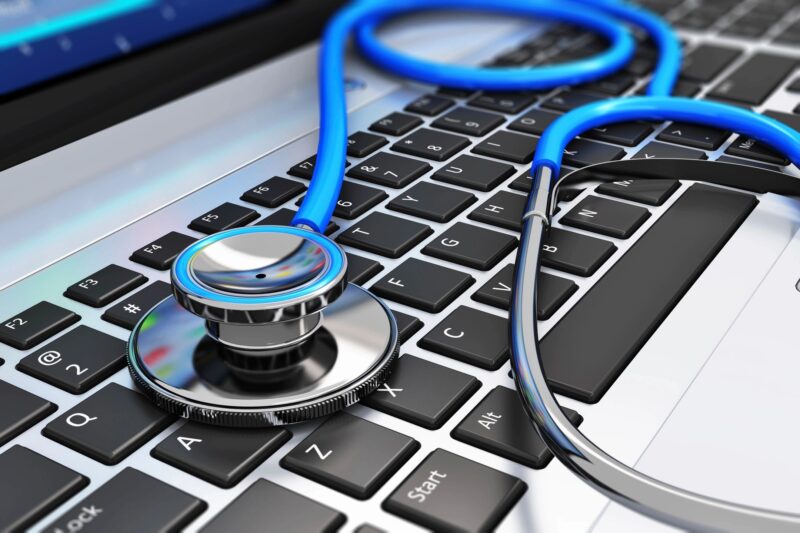Online education has become more popular than ever since the pandemic. In fact, over 2 million students attend online colleges. If you are part of this statistic but are going to school to become a medical professional we highly recommend investing in hands-on education to get the most out of your studies.

Although online studies come with flexibility, the quality of your education might not be the best in the medical profession where you will be dealing with real people and their health. The last thing you want is to not know the proper way to treat someone in the real world.
Read on to learn why investing in hands-on education is a better option in the medical field.
1. Live Feedback
Hands-on medical training means that you are performing specific tasks in front of your professor or teacher. Anytime you are performing a procedure in person, it gives your instructor the opportunity to provide you with live feedback at the moment.
This feedback is going to help boost your knowledge and your confidence, which you will need when you treat patients in the real world. It does not matter how many simulation procedures you do because it could never replace this type of experience and live feedback.
Depending on where you enroll in school, there might also be the opportunity to receive one-on-one training with a doctor that can watch you perform certain tasks and give you accurate feedback as well.
Whenever you are having difficulty with a procedure or task you will receive the proper advice on how to perform the task correctly and efficiently. This will go a long way when you are working a job in the future.
2. Observation
Another benefit of investing in hands-on training is that you will have the opportunity to see experts working. When you enroll in a medical aesthetic course you have the chance to see certain procedures being performed while you observe and take notes. Live observation is going to make a huge difference when it comes to the details of a procedure.
While you are observing, you will also see the specific tools and equipment used to perform certain duties. Many times accidents in the medical field occur because newbies do not know the proper equipment and tools to use.
3. Teamwork Training
Clinics, hospitals, and doctor’s offices are only as good as the team that operates them. Medical procedures and operations require interaction and communication between teams of nurses and doctors. When you have hands-on training you will learn how to work with a team in a way that is most beneficial to the well-being of a patient.
4. Networking
There is nothing like meeting and interacting with professionals out in the medical world. This is especially important when you are first starting out in your career with limited experience. During hands-on training, you can not only demonstrate your skills and personality, but you can develop great connections and professional relationships with others that have been in the field for a few years.
Many students can find permanent placement during an internship when they use the opportunity to showcase their ability and potential. Even when an internship doesn’t directly turn into a job, networking will always give you an advantage over someone that received their education strictly via online courses.
5. Real-World Experience
When you get a taste of how it is to perform day to day tasks of the medical profession you are opting for, you will gain more confidence. This confidence will help you succeed when you are operating in the real world. Plus, the confidence is going to shine through when you are in a job interview which will lead to you becoming an asset to any organization you choose to join.
Another bonus is that you might come to the realization that this is not your dream work or what you thought the field entailed. It is much better to figure out early on that a career is not for you than to graduate and then realize you need to change your field.
6. Hands-On Learning
Attending live learning means that you are not limited to lectures and books when it comes to learning. You will also participate in practice drills, live demonstrations of procedures, and group exercises.
Anything in the medical field requires real-life skills. Whether you opt to help nurses do their daily rounds, become a nurse yourself, help a doctor perform surgeries, or file and code paperwork, all of those things require a solid understanding of how things are supposed to be done.
Another pro of learning hands-on is that more of the program material is retained. Plenty of studies have been done where they show that when a student sits and listens intently in a lecture-style environment they retain around 20% of the information they are presented with. Now, when they have the opportunity to practice what they just learned, they retain around 75% of that information.
Students that are learning in a practical hands-on environment are more engaged than someone studying online. The appetite to learn increases in person and you are more willing to pay attention and listen when you know that there is a life task or practical task to complete at the end of the lesson, day, or week.
Ready to Level Up Your Medical Field Education?
Hopefully, now you are seeing why investing in hands-on education is a must when you are going into the medical profession. Everything from learning how to draw blood to dealing with a live patient is better done in person than through a computer.
Honestly hands-on medical training is the only way that you will feel prepared to deal with situations in the real world. You will also become more empowered in your learning situation when you invest in hands-on learning.
Make sure that when you are searching for hands-on learning programs, you choose the best training possible. This will make a world of a difference in your education.


